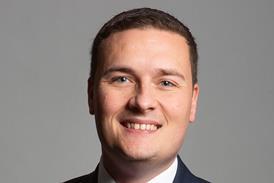It will require a change in mindset to establish and appreciate what commissioning support units can really offer CCGs, says John Deffenbaugh
Commissioning support has been an afterthought. The focus over the past couple of years has been on getting clinical commissioning groups set up. Commissioning support has been the “great unknown”.
‘The danger is that CSUs offer the same old, same old, because they comprise many of the former primary care trust managers’
It has been difficult to shape commissioning support when the CCGs themselves have been in such a state of flux. The original structure of 500 or so GP commissioning groups would have needed very different support from the 212 CCGs now authorised. As these new organisations get their collective feet under the table, there is now the opportunity to reflect on what it is that commissioning support units can offer.
There are two sides to this equation: what the buyer wants and what the supplier offers. The buyers (CCGs) are still at the “forming” stage. GPs and clinical colleagues are keen to take on their new task, but it will take some time for them to get to grips with commissioning. Some providers that are disparaging, to say the least, about their local CCG, do not help this process. My response would be to suggest that you get the CCGs you deserve.
What CSUs can offer
Enter the CSUs and what they can offer to the new commissioners. The danger is that they offer same old, same old, because they comprise many of the former primary care trust managers. What is needed instead is a real mindset change, reflecting the observation made by the late Steve Jobs when asked about what market research Apple had carried out for the iPad: “None. It’s not the consumers’ job to know what they want.” How many of us have iPads?
CSUs offer great unrealised potential. There are three concrete product offerings, all inter-related, that CSUs can make to their customers that will really help move commissioning forward.
‘There are some NHS providers who still think they have legally binding contracts. Forget it’
First is real interpretation of data and information. This is not just better joined up analysis of silos of data − finance, activity, quality, workforce, demand, capacity − but also applying more intelligence and insight to “what this tells us”. I have been a non-executive for over a decade and the board papers I see in my role, and also when working with other boards, are very effective in presenting data but often fall short in its interpretation. Commissioning decisions will be made on this intelligence and insight, which is too seldom provided.
Take for instance the target of a maximum four hour wait in accident and emergency. Rather than considering the fine to impose if the target is breached, a better conversation would be to explore what can be done to change the demand curve. The trust will be focusing on symptoms not the cause, so the CSU can provide commissioners with knowledge and insight to underpin this meaningful conversation.
Second is contract support. What the CCGs need is someone who can help them build relationships. What they’re offered is support in setting and monitoring contracts. There are some NHS providers who still think they have legally binding contracts. Forget it. The tide has gone out, there is no cash and the pain has to be shared. This is about relational contracting, based around conversation, not monitoring of classical contracts and imposing sanctions. It is also about vendor vetting − going into your supplier and vetting processes, quality, costs and the like.
‘What is needed is for CSUs to push forward the conversations with commissioners to explore what they want to buy’
This requires a totally different mindset for all parties, particularly CSUs. They need to offer skilled people who can go out and build relationships, not beat providers with a stick. Providers have a vested interest in hard negotiation, so the support unit has to strengthen the spine of the CCG as it deals with a recalcitrant “too big to fail” local provider.
Citizen engagement
Third is innovative engagement of citizens, communities and patients. This is not your traditional comms role, but rather about getting stakeholders to accept changes in service offering, to change behaviour to reduce demand and to accept responsibility for their lifestyle choices. It’s about engaging minority groups who have disproportionate demand or make excess use of NHS services.
Hire a communications and technology team of “generation Y” innovators and those who represent local communities who can empathise with patients and service users. CCGs will want to change the demand curve in their area, but they need help in getting this long term change in place.
There is a big mismatch between the current role envisaged for CSUs and this new role. There is also a mismatch of the skills in CSUs with what is suggested here. What is needed is for CSUs to push forward the conversations with commissioners to explore what they want to buy. Think Steve Jobs. Solve the problems that the CCGs don’t even know they have, or find intractable.
If the current CSUs don’t realise their potential now, then when CCGs develop in experience, they’ll go elsewhere for support.
John Deffenbaugh is a director at Frontline Consultants, john.deffenbaugh@frontlinemc.com




























3 Readers' comments